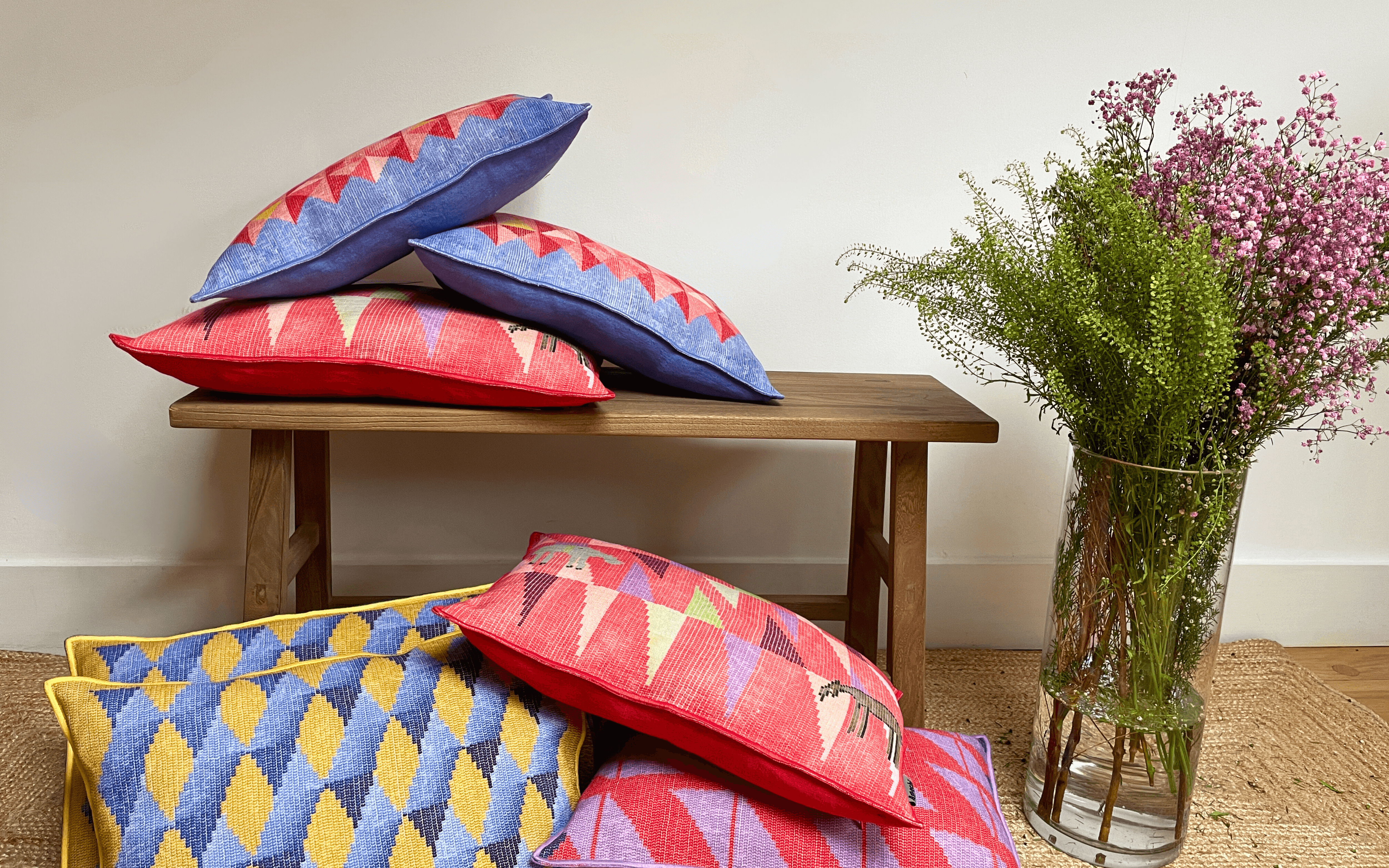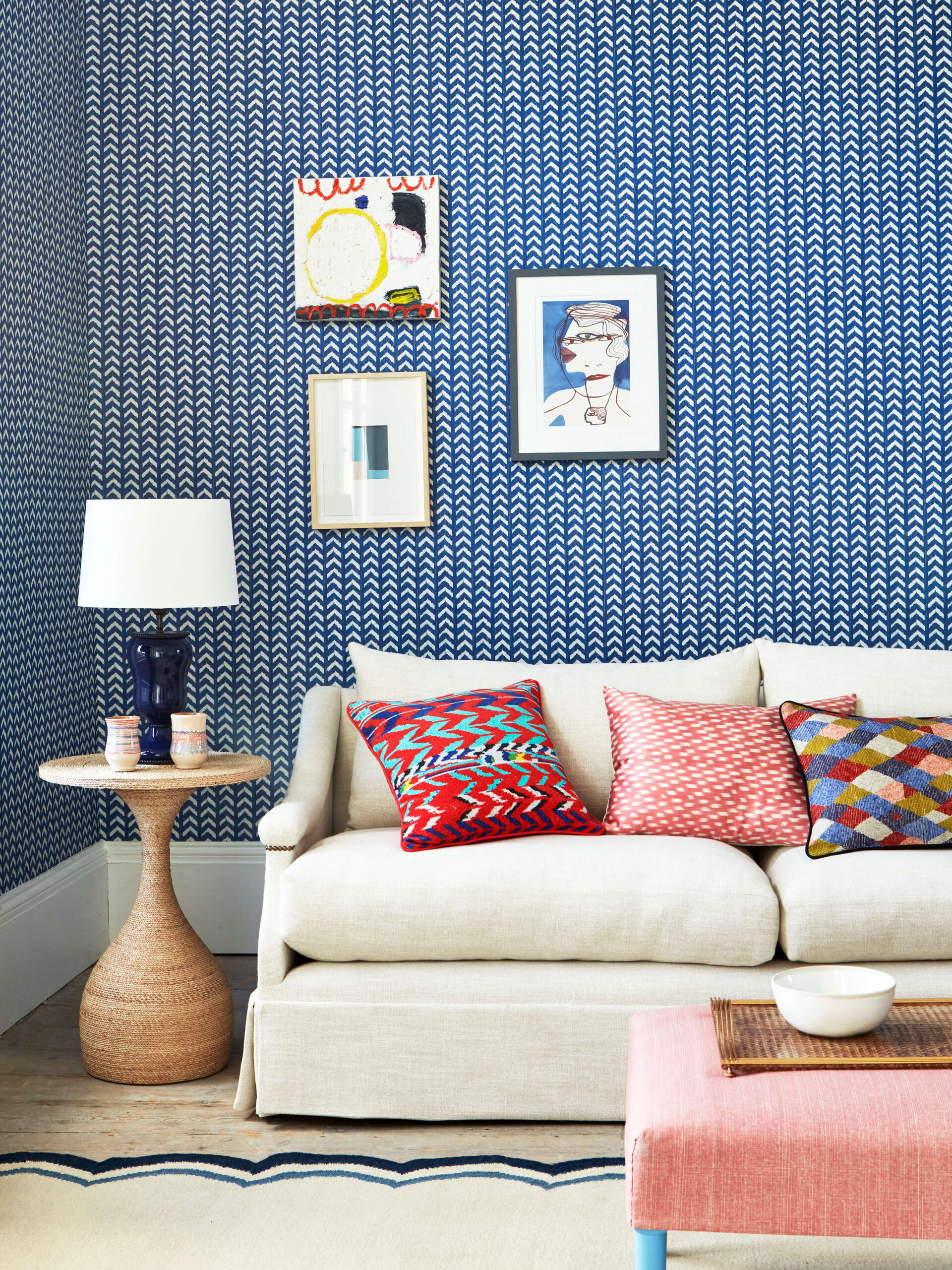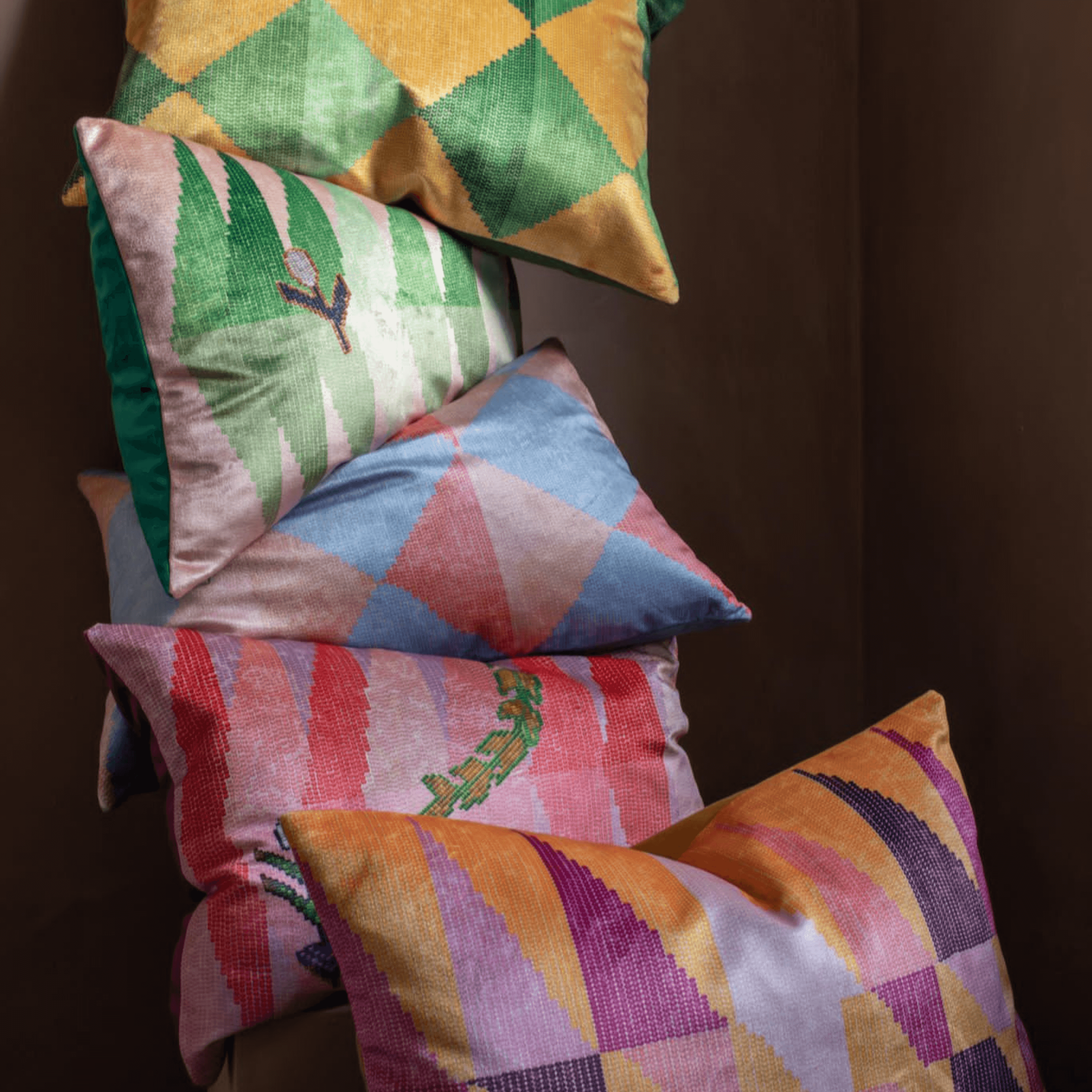Star Maker: Amechi
Author: Micaela Sharp
Each month I choose my top maker on the nine featured in my print column. This time it’s home decor brand Amechi, founded by Amechi Mandi
Introduce us to your brand
Amechi is a home decor brand that gets its inspiration from indigenous African (mostly west and central) traditions and cultures. It was founded out of the need to address what I considered to be identity issues in the ‘African-inspired’ home decor space, where the same things kept showing up all the time, despite the vast resource of original ideas, craft, and diverse and rich cultures across the continent.

Designs by Amechi
What makes you stand out from the crowd?
The brand was born from a critical analysis and research on identity – relating to my community and the motors that have shaped our approach to things. Without this it would otherwise be just another ‘me too’ brand. Due to this research, I was able to translate the traditional Kirdi modesty aprons into digitally illustrated versions which the brand now seems to be quite well-known for.
What part of the craft and process of making your items do you enjoy the most?
I like the pre-making part or the design process the most. I love coming up with new ideas, or working on a design and seeing new possibilities come up. It can be a short or a very long process to get something you really like and are satisfied with. After the illustrations are done, the rest is out of my hands.

Image by Dado Atelier
When did you realise you were a creative soul?
As a teenager, I think. I showed my mum something I’d drawn, and she said I could become a designer. So that’s how the thought crept into my head. Before that, I think I wanted to be a diplomat.
Why is sustainability so important to you personally and how you build your brand identity?
Anyone with a conscience knows that the environment is really suffering, and it’s our responsibility to redress that. I make sure I work with people who share these values. As a small business working with other small businesses, it isn’t easy to be 100 per cent sustainable because of the many parts involved in the supply chain. As my business is mostly with textiles, I make sure my suppliers are compliant with eco-friendly standards and I always try to find other fabric sources which are safer and less wasteful.
I’m working on replacing my velvet fabrics with recycled polyester which is a less wasteful option and I recently introduced Tencel while phasing out silk from the product range. Silk is unfortunately not that safe, and there’s too much animal cruelty involved. There are more environmentally safe silk production methods but then these are too costly. Tencel is a silk-like material made from wood pulp and doesn’t require as much water as cotton for its production.

When looking at your journey so far, would you do anything differently?
I’m quite the risk taker. If I didn’t have that streak, I probably wouldn’t have started the brand and would’ve been scared for all sorts of existential reasons. I don’t think I would do anything differently. It’s not easy running a business but there are a lot of upsides and, as an optimist, it can only get better.
What’s next for your brand? What newness should we look out for?
Throw blankets and ceramics. I’ve been saying this since 2021 and it’s getting embarrassing! But this year I’ll definitely be launching at least one of the two. The throw blankets will be part of my second collection – visiting another west African culture.
- Amechi have just launched a selection of products at the National Portrait Gallery shop and will be part of The Time is Always Now meet the maker event at London Craft Week.
Before you go...
...fancy automatic entry to all future competitions?
Simply register online today for FREE and you will get:
Automatic entry to all current and future competitions.
Access to Reclaim Inspiration - an online visual pinboard for saving all your home and style inspiration.
A regular newsletter of inspiration, ideas and advice.

Save all your articles in one place
Become a Reclaim Member to save all your home and style inspiration. Simply login or register online today for FREE and you will get:
Automatic entry to all current and future competitions.
Access to Reclaim Inspiration - an online visual pinboard for saving all your home and style inspiration.
A regular newsletter of inspiration, ideas and advice.








